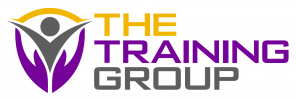Unit 1: Understanding roles, responsibilities and relationships in education and training
Learners will be taught how to analyse the application of pedagogical principles, use assessments, plan lessons and prepare for the classroom environment.
Understanding and using inclusive teaching and learning approaches in education and training
Planning to meet the needs of learners in education and training (Copy 1)
Assessing learners in education and training (Copy 1)
Using resources for education and training (Copy 1)
Unit 2: Teaching, Learning & Assessment In Education & Training (Copy 2) (Copy 1)
Learners will be taught about their responsibilities as educators, educational legislation, meeting the needs of the learners and how to teach in a student-centred manner.
Unit 3: Theories, Principles & Models In Education & Training (Copy 2) (Copy 1)
Learners will be taught ways in which theories, principles and models of learning can be applied to teaching, learning and assessment.
Unit 4: Wider Professional Practice & Development In Education & Training (Copy 2) (Copy 1)
Learners will be taught about the concepts of professionalism and dual professionalism in education and training and how they can apply this within the classroom.
Unit 15: Inclusive Practice (Copy 2) (Copy 1)
Learners will be taught how to review the impact of personal, social and cultural factors on learning and teaching.
Unit 17: Preparing for the mentoring role (Copy 2) (Copy 1)
Learners will be taught how to analyse the skills and qualities required for a the mentoring role teachers play in education.
Unit 25: Developing, using and organising resources in a specialist area (Copy 2) (Copy 1)
Learners will be taught how to analyse how theories, principles and models of inclusive curriculum design can be used to inform resource development in own specialist area.
No questions yet
Be the first to ask your question! You’ll be able to add details in the next step.
Ask a new question
Add an answer
Stakeholders and external bodies
As a trainee teacher, understanding the different stakeholders involved in education is crucial. Stakeholders are individuals or groups who have an interest in the education system and may have an impact on the policies, strategies, and outcomes. Here, we will discuss the different stakeholders involved in education and their roles.
Stakeholders in education can be divided into two categories: internal and external stakeholders. Internal stakeholders include teachers, students, parents, and school administrators, while external stakeholders include awarding organizations, regulatory bodies, policymakers, and employers.
Awarding organizations are responsible for designing, developing, and awarding qualifications in a particular field or industry. They ensure that the qualifications meet the industry standards and requirements. Some examples of awarding organizations in the UK include Pearson, City & Guilds, and AQA.
Regulatory bodies such as Ofqual are responsible for maintaining standards and regulating qualifications. They ensure that the qualifications offered by awarding organizations are fit for purpose and meet the required standards. Ofsted, on the other hand, is responsible for inspecting and regulating schools, colleges, and other educational institutions in the UK.
The Department for Education (DfE) is a government department responsible for education and children’s services in England. The Education and Skills Funding Agency (ESFA) is another government agency that provides funding and support for education and training.
The Institute for Apprenticeships is responsible for developing and approving apprenticeship standards in England. Sector Skills Councils are responsible for developing qualifications and training programs for specific industries.
Employers are also important stakeholders in education as they provide work placements, apprenticeships, and job opportunities for students. Partnership working between employers and educational institutions can help bridge the gap between education and the world of work.
Accountability is a critical aspect of education, and stakeholders play a vital role in ensuring that educational institutions are accountable. Stakeholders can hold institutions accountable for their performance, ensuring that they deliver high-quality education and meet the required standards.
The impact of stakeholders in education can be significant. By working together, stakeholders can shape the education system, improve the quality of education, and ensure that learners have access to the skills and knowledge they need to succeed.
In conclusion, understanding the different stakeholders involved in education is essential for trainee teachers. By working collaboratively with stakeholders, trainee teachers can ensure that they deliver high-quality education that meets the needs of learners and the wider society.
Further Reading:
Academic Articles:
-
Davies, B., & West-Burnham, J. (2003). Handbook of educational leadership and management. Pearson Education.
-
Smith, E. (2013). Understanding education policy: The ‘four education policy communities’ framework. Journal of Education Policy, 28(5), 555-571.
-
Stoll, L., & Fink, D. (1996). Changing our schools. Open University Press.
Online Articles:
-
Department for Education. (2018). Stakeholders in education: Who are they and why are they important? Retrieved from https://www.gov.uk/government/publications/stakeholders-in-education-who-are-they-and-why-are-they-important
-
Ofqual. (2020). What is a regulator? Retrieved from https://www.ofqual.gov.uk/what-we-do/about-us/what-is-a-regulator/
-
UK Skills. (2019). Sector Skills Councils: An overview. Retrieved from https://www.uksp.co.uk/sector-skills-councils-an-overview/
Videos
- “Who are the Stakeholders in Education?” by TeachThought: https://www.youtube.com/watch?v=v3qX9Zpw89Q
- “Stakeholders in Education and Their Roles” by Educational Research Techniques: https://www.youtube.com/watch?v=wXU6ZKj6oEo
- “What is a Stakeholder?” by The Business Professor: https://www.youtube.com/watch?v=OPI9Qg63_h0



